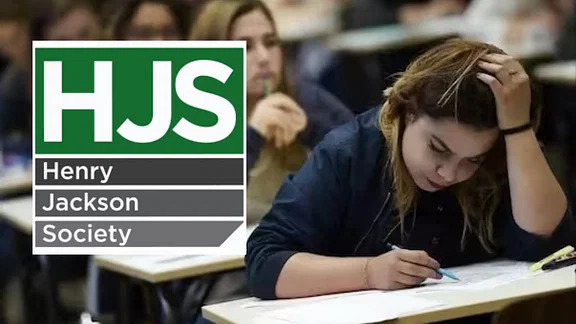In the Leicester case, the Henry Jackson Society found that media had emphasised a false narrative of Hindu extremism.
LONDON:
On 17September last year, whilst the United Kingdom grieved the Queen, hundreds of men descended on Leicester from across the UK to fightHinduswho were marching for their right to live in postcode area LE5. These men claimed the chants of “Jai Shri Ram” were evidence of organised Hindutva extremism infiltrating the UK. Evidence quickly built that showed the Hindu march organisers had no such connections and a mere stroll through LE5 would show you the systematic attacks on vehicles and houses that had dared to hang a Hindu symbol.
Whilstprotestors called the Hindus “Hindutva extremists”, “cow piss drinkers” and “violent vegetarians”,multiple news platforms and numerous notable political commentators in the UK took to the pen and parroted the Islamist narrative, turning their attention to politics in the subcontinent rather than the false claims of “Hindutva extremism/RSS terrorism” and subsequent attacks on the Hindu community.
After spending time in Leicester conducting interviews with both Muslim and Hindu residents, compiling social media evidence, video evidence, police reports and statements. I observed a community cohesion breakdown pertaining to loud festivals, antisocial behaviour and a conflict between Muslim youth and Hindu youth stemming from territorial attitudes towards one another.
The Henry Jackson report was the first in-depth collation of evidence and analyses looking at what led to the unrest.We found that media had, overwhelmingly emphasised a false narrative of Hindu extremism that had put the wider UK Hindu community at risk.There was a persistent over-reliance on known extremists for media comment, including Majid Freeman,noted in the report as having offered prayers to the Taliban.
Our report stands alone in UK based research reports that sought to understand that communal conflict last summer. Whilst our commentary in the British press stood apart in its discussion of the anti-Hindu hate on display. In the aftermath questions tuned to: what is anti-Hindu hate, how is it manifesting in the UK and why is no-one talking about it?
This April,our report into anti-Hindu hate in the UK finds that 51% of Hindu parents surveyed reported that their child had experienced anti-Hindu hate in schools, while less than 1% of schools reported any anti-Hindu related incidents in the last 5 years. 8 physical assaults were detailed. One female Hindu pupil had beef thrown on her, a male student was reported to have to change East London schools three times on account of anti-Hindu bullying and concerns have been raised around a problematic approach to teaching Hinduism,potentially leading to bullying in the classroom.
We found anti-Hindu hateto be multifaceted and driven by a number of ideologies. Pupils described xenophobic remarks on their skin colour, Christian classmates telling them they can’t enter a church and numerous accounts of Muslim classmates telling them the bullying will stop when they convert. The negative experiences of Hindu pupils in the UK are compounded by an often-biased approach to teaching Hinduism and probable ignorance on the part of teachers as to what anti-Hindu hate looks like. An Abrahamic bias is seen to inform teaching in some schools and has been seen to directly feed into the prejudice Hindus are facing. This is fermented by communal conflicts originating in the sub-continent affecting how some Muslim pupils are treating Hindu peers in the classroom. Much of which passes under the radar.
In Leicester it comes down to political sensitivities and votes. Media platforms have “Islamophobia” fatigue, concerned that any mention of Islamist extremism may have them branded racist.Then there is the fact that Hindus simply do not make up a large enough proportion of the votes, therefore when self-proclaimed Muslim spokespersons say that the “Muslim community” wants firmer action taken against “Hindutva”, the politicians appease.
The press coverage over the civil unrest in Leicester was a tragic missed opportunity. The parroting of the accusation of Hindutva extremism without a shred of evidence has gravely impacted on the lives of Hindus; temples across the countryfaced protest and threats of protest. The Hindu community have been left feeling unprotected, watching those that were key in spreading misinformation against them, endorsed by those in political power.
Now with Rishi Sunak as Britain’s first Hindu Prime Minister,the spotlight will inevitably turn to Hinduism in the UK, but will we see a continued hunt for Hindu extremism or a much needed address of anti-Hindu hate?
Will the first report into anti-Hindu hate in the UK see the press take the opportunity to right Leicester’s wrongs? We will wait and watch to see whether now, with such damning figures to hand,concerns over anti-Hindu hate in the UK will be taken seriously.
* Charlotte Littlewood is a research fellow at the Henry Jackson Society. She is a PhD candidate in Arab and Islamic studies with the University of Exeter. Her research focuses on minority within Muslim minority conflict in the UK. A former Counter-Extremism Coordinator for an East London Borough, Charlotte then founded her own community interest company with the aim of countering extremism and promoting equality, focusing on women’s rights and tackling domestic violence and working towards greater tolerance and cohesion between communities in the UK.
Charlotte has an LLB in Law and MA in Security and Strategy.

